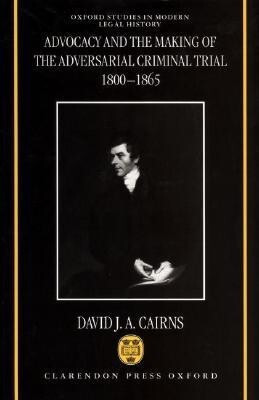Advocacy and the Making of the Adversarial Criminal Trial 1800-1865 1 Edition(English, Hardcover, Cairns David J. A.)
Quick Overview
Product Price Comparison
The modern adversarial criminal trial emerged from the punitive and procedural upheaval in the criminal law of the first half of the nineteenth century. The campaign against capital punishment, which marked the century's early decades, stimulated procedural reform, including the enactment in 1836 of the Prisoners' Counsel Act. The 1836 Act enabled defence counsel for the first time to address the jury in felony trials. It generated a unique debate in Parliament, the press and the legal professions on the merits and dangers of advocacy. This book examines the debate and the practical implications of procedural reform for the conduct of criminal trials. The topics discussed include the increasing sophistication of prosecution and defence advocacy, the beginnings of modern professional ethics and the conscious rationalisation of adversary procedure as the best means to discover the truth. This is the first scholarly work to analyse the practice of advocacy and to identify its significance for the administration of justice. It includes case studies of four major criminal trials which demonstrate the interrelationships between advocacy and procedure in the making of the adversarial criminal trial. This is the first title of a new series, Oxford Studies in Modern Legal History, which, under the general editorship of Professor Brian Simpson, will publish outstanding monographs on legal history covering the period 1750 onwards.


